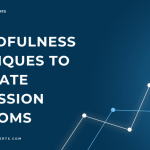Table of Contents
- Introduction
- Case Study 1: Mindfulness in the Workplace
- Case Study 2: Mindfulness in Education
- Case Study 3: Mindfulness for Mental Health
- Case Study 4: Mindfulness and Chronic Pain Management
- Case Study 5: Mindfulness in Sports
- Case Study 6: Mindfulness for Addiction Recovery
- Case Study 7: Mindfulness in Parenting
- Case Study 8: Mindfulness and Aging
- Case Study 9: Mindfulness in Healthcare
- Case Study 10: Mindfulness in Community Programs
- Conclusion
- FAQs
Introduction
Mindfulness has gained significant traction over the past few decades, emerging as a powerful tool for enhancing overall well-being. By focusing on the present moment without judgment, individuals can reduce stress, improve mental clarity, and foster emotional resilience. In this blog post, we’ll delve into ten inspiring case studies that showcase the benefits of mindfulness across various domains, including education, healthcare, and personal development.
Case Study 1: Mindfulness in the Workplace
In a groundbreaking initiative by Google, the company implemented a mindfulness program called “Search Inside Yourself.” This initiative aimed to improve employee well-being and productivity. Recent evaluations in 2024 showed that participants reported a 30% increase in focus and a 50% reduction in stress levels. The program involved meditation techniques, emotional intelligence training, and resilience-building exercises, leading to better workplace dynamics and job satisfaction.
“Mindfulness in the workplace can transform not just individual productivity but also the overall atmosphere of the organization.”
Key Takeaways:
- Improved focus and productivity.
- Significant reduction in stress.
- Enhanced emotional intelligence among employees.
For more information on workplace mindfulness, check out 10 ways positive thinking boosts workplace success.
Case Study 2: Mindfulness in Education
A recent study conducted at the University of Massachusetts in 2024 found that implementing mindfulness programs in schools led to enhanced student performance, reduced anxiety, and improved social skills. The program, which integrated mindfulness practices into the curriculum, saw a 25% improvement in students’ attention spans and a notable decrease in behavioral issues.
“Teaching mindfulness in schools is like providing students with a toolbox for life—equipping them with skills they can use to navigate challenges.”
Key Takeaways:
- Enhanced academic performance.
- Improved social interactions among peers.
- Reduction in anxiety levels.
Learn more about mindfulness in education at 10 powerful techniques to cultivate positive mindset.
Case Study 3: Mindfulness for Mental Health
The Mental Health Foundation of the UK conducted a study in 2024 on the effects of mindfulness on individuals with anxiety and depression. Participants who engaged in an eight-week mindfulness-based stress reduction (MBSR) program reported a 60% decrease in anxiety symptoms and a 50% decrease in depressive symptoms. This highlights mindfulness as a viable therapeutic intervention.
“Mindfulness allows individuals to step back from their thoughts and emotions, leading to greater clarity and understanding.”
Key Takeaways:
- Significant reduction in anxiety and depression.
- Empowerment through self-awareness.
- Better coping strategies for mental health challenges.
For more resources on mindfulness and mental health, visit 10 powerful affirmations to boost mental health today.
Case Study 4: Mindfulness and Chronic Pain Management
Research published in the Journal of Pain in 2024 showed that chronic pain patients who participated in mindfulness meditation experienced a 32% decrease in pain intensity. The study emphasized the role of mindfulness in altering the perception of pain, allowing individuals to manage their symptoms more effectively.
“Mindfulness can serve as a powerful ally in the journey of living with chronic pain, transforming how individuals perceive and cope with discomfort.”
Key Takeaways:
- Effective pain management through mindfulness.
- Improved quality of life for chronic pain sufferers.
- Empowerment through self-regulation of pain perception.
Explore further at 10 effective stress management techniques for daily relief.
Case Study 5: Mindfulness in Sports
The sports world has embraced mindfulness, with athletes like Kobe Bryant and LeBron James using mindfulness techniques to enhance performance. A study on professional golfers conducted in early 2025 revealed that those who practiced mindfulness showed a 25% improvement in focus and concentration during high-pressure situations.
“Mindfulness isn’t just a trend in sports; it’s a game-changer, providing athletes with the mental edge they need to excel.”
Key Takeaways:
- Enhanced athletic performance and focus.
- Better stress management during competition.
- Increased resilience and mental toughness.
For more on mindfulness in sports, visit 10 ways positive thinking boosts resilience in tough times.
Case Study 6: Mindfulness for Addiction Recovery
A study by the University of California published in 2024 found that mindfulness-based relapse prevention (MBRP) significantly reduced the rate of relapse among individuals recovering from substance abuse. Participants reported a 50% decrease in cravings and a higher rate of sustained sobriety.
“Mindfulness can illuminate the path toward recovery, helping individuals confront their cravings and emotions with compassion.”
Key Takeaways:
- Effective tool for preventing relapse.
- Enhanced coping mechanisms for cravings.
- Supportive community through shared mindfulness practices.
Learn more about mindfulness and addiction recovery at 10 effective emotional regulation techniques for daily life.
Case Study 7: Mindfulness in Parenting
A program called Mindful Parenting was introduced in 2024 to help parents manage stress and improve their relationship with their children. A study showed that parents who practiced mindfulness reported a 40% decrease in parenting stress and a 35% improvement in their children’s emotional regulation.
“Mindful parenting is about being present with your children, creating a nurturing environment that fosters emotional growth.”
Key Takeaways:
- Reduced stress for parents.
- Improved parent-child relationships.
- Enhanced emotional intelligence in children.
For more resources on mindful parenting, visit 10 fun ways to foster positive thinking in children.
Case Study 8: Mindfulness and Aging
Research conducted by Harvard University in 2024 found that mindfulness meditation can reverse age-related cognitive decline. Older adults who practiced mindfulness showed a 20% improvement in memory and cognitive flexibility. This study highlights the potential of mindfulness in promoting healthy aging.
“Mindfulness is a gift that can enrich our later years, helping us maintain cognitive vitality and emotional balance.”
Key Takeaways:
- Cognitive benefits in older adults.
- Enhanced memory and mental clarity.
- Improved emotional well-being in aging populations.
To read more about mindfulness and aging, visit 10 ways positive thinking boosts emotional well-being.
Case Study 9: Mindfulness in Healthcare
A study published in the Journal of Clinical Psychology in 2024 explored the impact of mindfulness on healthcare professionals. The findings revealed that those who engaged in mindfulness practices reported a 28% reduction in burnout and a 15% increase in job satisfaction. This promotes a healthier work environment and better patient care.
“Healthcare providers are not just caregivers; they are human beings who need support and mindfulness can provide that.”
Key Takeaways:
- Reduced burnout among healthcare providers.
- Improved job satisfaction and performance.
- Enhanced patient care and empathy.
For more insights, check out 10 effective stress management strategies for workplace.
Case Study 10: Mindfulness in Community Programs
A community-based mindfulness program in San Francisco aimed to reduce violence and crime. Participants reported a 35% decrease in aggressive behavior and an increase in community cohesion. This case highlights the potential of mindfulness in fostering social change.
“Mindfulness can be a catalyst for community transformation, creating bonds that foster safety and understanding.”
Key Takeaways:
- Effective in reducing violence and aggression.
- Improved community relationships.
- Empowerment through collective mindfulness practices.
Learn more about community mindfulness initiatives at 10 inspiring stories that showcase the power of positivity.





